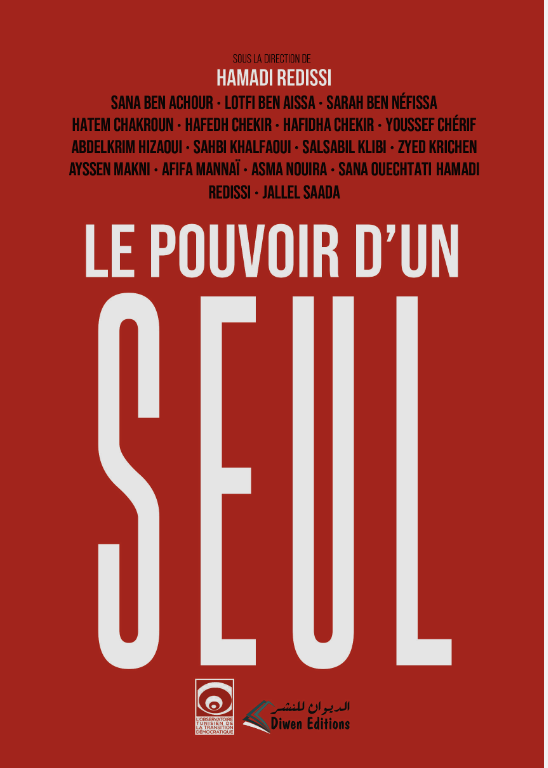Le Pouvoir d'un Seul - Hamadi Redissi Et al.

Book Title:
Le Pouvoir d'un Seul
Author:
Hamadi Redissi Et al.
Genre:
Essay, Politics, Internal Affairs, Tunisia
Synopsis:
This book is a collection of articles and journal articles about the Kais Said phenomenon and his burgeoning dictatorship. Kais Said is Tunisia's president since 2019. He ran an extreme populist campaign and organized an autogolpe (self-coup) during the height of the Covid-19 pandemic during Tunisia's Republic day.
This collection of articles is directed by the esteemed Tunisian political scientist Hamadi Redissi and multiple other colleagues (Economists, international affairs specialists, and human rights lawyers among many others)
This collection is a survey of Tunisia post-coup. It is divided into 6 main parts:
- Populism, between democracy and dictatorship.
- The law as the will of one man: "L'État, c'est moi".
- Religion of the state, religion of the Umma.
- Dominating the media landscape.
- A populism without people.
- Uncontrolled context: Economy and foreign policy.
Each part is composed of multiple articles that dissect specific aspects of Tunisia's political, economic, and human rights landscape post-coup.
Personal Reflection:
This book was very personal as it deals with my home country and its current state. It hits home in a very particular way. Furthermore, knowing some of the authors makes having an objective judgment hard. I will try to do my best to give my own personal reflection.
It is important to look at events from a rational perspective and be as neutral as one can be even about one's country. I was opposed to the 25th of July coup from the get-go despising the populist policies and tone. The overall critical tone towards the Said regime sits well with me and makes me sympathetic to the theses put forth in the book.
The general observation that comes from the book is that of a country in the image of its current autocrat and regime: paranoid, close to itself, conspiratorial, ignorant, and incompetent.
It pains me to read the level of regression that Tunisia's gone through in the past three years, yet this information needs to be widely spread to counter any propaganda from the current regime. Speculators and foreign powers are not the causes of our current misfortune as the current president claims. It rather lies in the utter incompetence of the current and past political class to reform a worn-out economic and social engine that is brewing class divide, inequality, injustice, poverty, and isolation day after day.
One thing that the book does extremely well is analyze the coup and the current regime from the legal and human rights lens. On the other hand, the economic component of the current state's degradation is not deeply investigated. I will note the brilliant chapter about Tunisia's foreign policy that singles out the utter isolation of the current regime and its obsolescence in the global world and order.
Tunisia went from a major Mediterranean, African, and Middle Eastern deal maker, negotiator, and broker to a diplomatic, political, and economic non-entity. All the sympathy that Tunisia garnered since independence and was further enhanced with the revolution of the 14th of January 2011 vanished with Said's self-coup and crazed and delusional discourses.
"Le Pouvoir d'un Seul" is the portrait of an authoritarian drift, of a regressive and closed autocratic regime being born. Kais Said appears to be a North African Macbeth, a seemingly innocuous character getting high on power and walking slowly to his own self-made demise. However, this real-time tragedy is engulfing a whole nation of twelve million souls before it comes to its tragic and logical end.
Overall Rating:
4 over 5